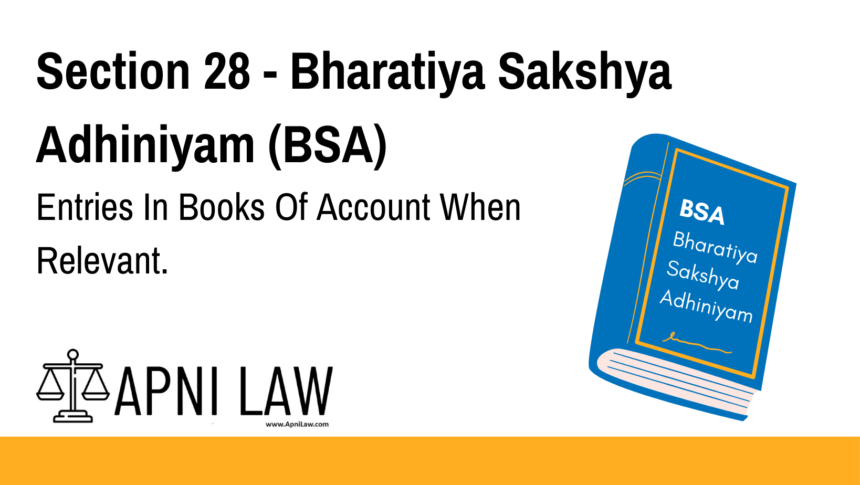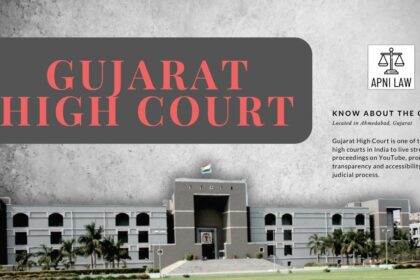Code
Entries in the books of account, including those maintained in an electronic form,
regularly kept in the course of business are relevant whenever they refer to a matter into
which the Court has to inquire, but such statements shall not alone be sufficient evidence
to charge any person with liability.
Illustration.
A sues B for one thousand rupees, and shows entries in his account books showing
B to be indebted to him to this amount. The entries are relevant, but are not sufficient,
without other evidence, to prove the debt.
Explanation
Section 28 of the Bharatiya Sakshya Adhiniyam (BSA) deals with the admissibility of entries made in books of account, whether physical or electronic, during the regular course of business. These entries are considered relevant when they pertain to a matter the Court is investigating.
However, a crucial limitation is embedded in the section — such entries alone are not enough to impose liability on any person. Additional corroborative evidence must be presented to establish liability beyond doubt. This provision ensures the integrity of business records without allowing them to be misused as sole proof against a party.
This section is especially significant in commercial disputes and financial litigations.
Illustration
A sues B for one thousand rupees and presents his ledger entries (maintained in software) showing that B owes him ₹1,000. These entries are relevant under Section 28 BSA. However, A must still provide additional evidence — such as a signed receipt, promissory note, or witness testimony — to prove the debt conclusively.
Common Questions and Answers
1. Are digital ledger entries admissible in Court under Section 28?
Yes. Entries maintained in an electronic form are explicitly covered by Section 28 and are admissible if they were regularly maintained in the ordinary course of business.
2. Can business account entries alone be used to convict or charge a person?
No. Section 28 clearly states that entries alone, without additional supporting evidence, are not sufficient to charge any person with liability.
3. What type of supporting evidence is needed alongside the entries?
Supporting documents like receipts, emails, invoices, bank statements, or witness statements can help prove the liability mentioned in the books of account.
4. Why is corroborative evidence necessary?
To prevent misuse of fabricated or incomplete account books, the law mandates that no one can be charged based on internal records alone. This protects the rights of the alleged debtor.
5. Are account books required to be regularly maintained for their entries to be relevant?
Yes. Only those books of account that are “regularly kept in the course of business” are admissible under this provision.
Conclusion
Section 28 of the Bharatiya Sakshya Adhiniyam safeguards the evidentiary value of account books while ensuring that no person is unjustly held liable based solely on internal business records. It strikes a balance between evidentiary relevance and legal fairness.
For more expert legal insights on BSA and BNSS, visit ApniLaw today!








